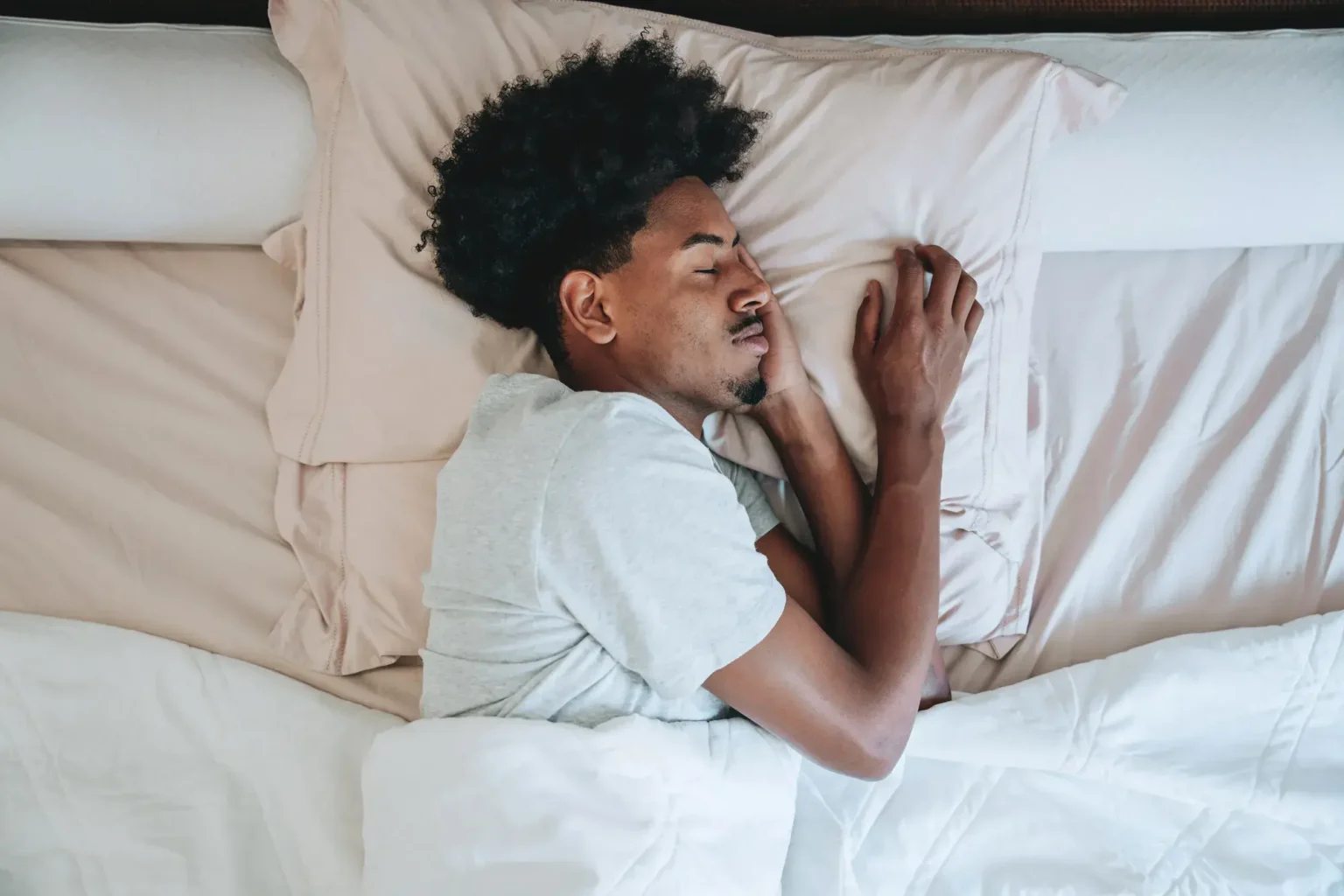Introduction
We’ve all been there—tossing, turning, staring at the ceiling while the clock ticks on. If you’re struggling with sleepless nights, you’re not alone. The good news? There are effective ways to sleep better tonight without overhauling your life. This guide offers practical, science-backed strategies to help you fall asleep faster, stay asleep longer, and wake up refreshed.
Set a Sleep Schedule—and Stick to It
Your body loves routine. Going to bed and waking up at the same time every day—even on weekends—helps regulate your internal clock. This circadian rhythm tells your body when to feel sleepy and when to feel alert.
Start by choosing a bedtime that allows for at least 7–9 hours of sleep. Gradually adjust if needed, in 15-minute increments. Consistency helps you fall asleep faster and feel more energized in the morning.
Tip: Set a “wind-down” alarm 30 minutes before bed to remind you it’s time to unplug and prepare for rest.
Create a Relaxing Bedtime Routine
A calming pre-sleep routine tells your brain it’s time to slow down. Avoid stimulating activities like checking email, watching action movies, or scrolling through social media.
Try these relaxing rituals:
- Read a physical book or listen to soothing music
- Take a warm bath or shower
- Practice deep breathing or gentle yoga
These habits lower stress and transition your body into sleep mode—helping you sleep better tonight and every night.
Make Your Bedroom a Sleep Sanctuary
Your sleep environment plays a big role in how well you rest. To optimize your space for sleep, aim for dark, quiet, and cool conditions.
Try this:
- Use blackout curtains to block light
- Set the temperature between 60–67°F (15–19°C)
- Add white noise with a fan or machine if needed
Investing in a quality mattress and supportive pillows can also dramatically improve sleep quality. Your bedroom should be a calm, tech-free zone that invites rest.
Limit Screen Time Before Bed
Blue light from phones, tablets, and TVs can disrupt melatonin production, the hormone that helps you fall asleep. Aim to power down at least 30–60 minutes before bedtime.
If you need a screen:
- Use blue light filters or “night mode”
- Try a podcast or audiobook instead of video
- Dim lights around the house to signal bedtime
Reducing exposure to screens in the evening supports your body’s natural sleep-wake cycle and helps you sleep better tonight.
Watch What You Eat (and Drink) in the Evening
What you consume can either help or hurt your sleep. Avoid caffeine and heavy meals close to bedtime, as they can keep you alert or cause indigestion.
Instead, try:
- Herbal teas like chamomile or lemon balm
- Light snacks like a banana, yogurt, or almonds
- Limiting alcohol, which disrupts REM sleep
Balancing your blood sugar before bed can prevent midnight wake-ups and help you get the deep sleep your body needs.
Move More During the Day
Regular physical activity improves sleep by reducing stress and tiring the body. Even 30 minutes of moderate exercise—like walking, biking, or dancing—can make a big difference.
Just avoid intense workouts too close to bedtime, as they may make it harder to wind down. Try morning or afternoon exercise for the best results.
Being active during the day boosts your chances of falling asleep faster and sleeping more deeply—helping you sleep better tonight and long term.
Conclusion
Good sleep isn’t a luxury—it’s a necessity for your mood, health, and productivity. The great news is that you don’t need expensive products or complicated routines to sleep well.
With small, intentional changes—like setting a schedule, creating a calming environment, and moving your body—you can start seeing improvements right away.
FAQs
How many hours of sleep do I really need?
Most adults need 7–9 hours of quality sleep per night to function at their best.
What’s the best time to go to bed?
Ideally, between 9 PM and 11 PM. Your body’s natural sleep cycle aligns with this window for the best rest.
Can I catch up on sleep over the weekend?
Not completely. While you may feel better short-term, consistent sleep habits are key to long-term energy and health.
Does napping affect nighttime sleep?
Short naps (20–30 minutes) can help. Avoid long or late-day naps, as they can interfere with falling asleep at night.
Why do I wake up in the middle of the night?
Common causes include stress, noise, or blood sugar drops. Try relaxing techniques and a light bedtime snack to reduce wake-ups.


